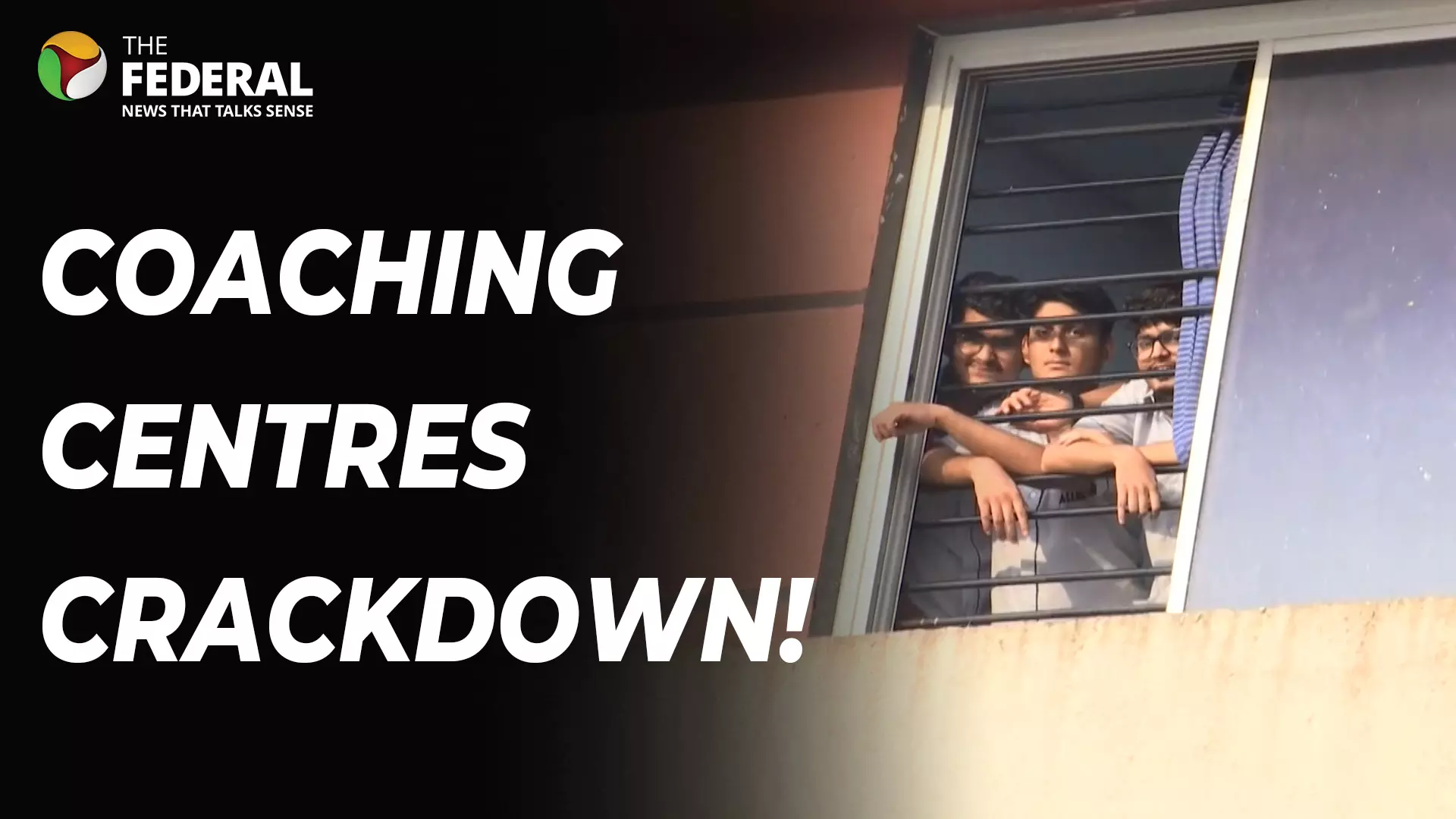
Can Rajasthan's new coaching bill rein in exploitative centres, save young lives?
Rajasthan’s new coaching bill aims to protect students, but critics say it actually helps big centres. Can it truly reduce student pressure and save young lives?

Kota in Rajasthan, India’s coaching capital, has always been in the spotlight not just for producing IIT and NEET toppers but for student suicides.
Now, in an effort to curb this malaise, and rein in the exploitative tactics of the coaching industry, the Rajasthan Assembly has passed the Coaching Centre Regulation Bill 2025. This bill to regulate the ₹7,000 crore coaching industry has been long overdue.
In 2023 alone, nearly two dozen students took their lives in Kota. That number dropped slightly to 17 in 2024, but this year, within just the first two months, seven student suicides have already been reported.
“These are students studying in coaching institutes. Pressure-filled classrooms and hostel rooms have raised a big question as to who regulates this massive industry?” noted senior journalist Rajan Mahan.
Also read: Jolted by suicides, Kota brings reforms to woo back JEE, NEET aspirants
Key provisions introduced
The bill introduces a 12-member regulatory body with powers similar to a civil court. Coaching centres must now provide full transparency about their faculty, infrastructure, and management. They cannot run misleading advertisements or falsely claim inflated success rates.
Importantly, if a student drops out mid-term, the coaching centre must refund fees within 10 days, a move aimed at reducing the financial burden on families.
The regulation, while primarily targetting Kota, also applies to growing hubs like Jaipur, Jodhpur, and Ajmer.
“An annual investment of a few lakhs is what is required. Some top institutes charge even more,” Mahan said, highlighting the financial pressure on families.
Also read: 'Killer' tag leaves Kota’s economy tottering; will city ace this test?
Safeguards dropped
The bill is projected to be a welfare measure for students. However, given the history of student suicides in coaching centres, questions are being raised about clauses that were initially proposed in the bill and then dropped by the government.
Several protective provisions from earlier drafts have been omitted. For example, a proposed minimum age of 16 years for students joining coaching centres, meant to protect younger teens, was removed.
“Why is it that they’re leaving these students vulnerable at a much younger age? What a 14-year-old finds impossible to handle, a 17-year-old may cope with,” Mahan said.
The bill also excludes clauses that protected differently-abled students and dropped mandates for observing national and local holidays.
Also read: Rajasthan: JEE aspirant from MP hangs self in Kota; second 'suicide' in 24 hours
Mixed reactions from industry
While the regulation is welcomed in principle, critics argued that the bill still tilts in favour of large coaching businesses. These entities, already facing a dip in admissions, now appear to support the bill. Smaller coaching centres, however, fear they won’t be able to meet the stricter requirements.
“Earlier national recommendations mandated passing Class 10 and being at least 16 years old – those are missing now,” Mahan pointed out.
Balancing act
As Kota continues to attract lakhs of aspirants, the new bill raises crucial questions: Will the new regulations truly prioritise student well-being?
And can state policy strike a balance between safeguarding young lives and sustaining a multi-crore coaching industry?
The content above has been generated using a fine-tuned AI model. To ensure accuracy, quality, and editorial integrity, we employ a Human-In-The-Loop (HITL) process. While AI assists in creating the initial draft, our experienced editorial team carefully reviews, edits, and refines the content before publication. At The Federal, we combine the efficiency of AI with the expertise of human editors to deliver reliable and insightful journalism.

